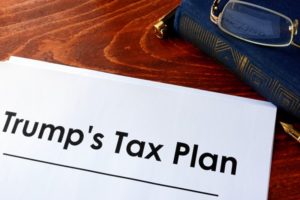FBAR Penalties Could Be Lessened Under New IRS Guidelines
According to the IRS, “if you have a financial interest in or signature authority over a foreign financial account, including a bank account, brokerage account, mutual fund, trust, or other type of foreign financial account, exceeding certain thresholds, the Bank Secrecy Act may require you to report the account yearly to the Department of Treasury by electronically filing a Financial Crimes Enforcement Network (FinCEN) 114, Report of Foreign Bank and Financial Accounts (FBAR).”
In other words, anyone who has money in a foreign bank account that exceeds $10,000 at any time during a given year will need to report that income to the IRS via an FBAR. However, recently, the IRS issued some new guidance regarding the penalties for those who don’t file an FBAR. According to reports, the IRS released a statement that noted: “For each year for which it is determined that there was a willful violation, examiners must fully develop and adequately document in the examination work papers their analysis regarding willfulness.”
For any case that involves willful violation for several years, it is up to the examiner to recommend the penalty length for each year the violation was determined to be willful. The IRS stated that typically the total penalty for the combined years under examination would not exceed ‘50 percent of the highest aggregate balance of all unreported foreign financial accounts during the years under examination.”
Meantime, an examiner can recommend more or less than the 50 percent threshold, but the total penalty cannot “exceed 100 percent of the highest aggregate balance.” There are obviously many possible scenarios and each case will be treated separately on its own merits and circumstances. The bottom line is you should still report your FBARs each year and report them on time. If you need help planning for and filing your FBAR then contact GROCO today at 1-877-CPA-2006, or by clicking here.
The Principles Behind Trump’s Big Tax Reform Plan
The Principles Behind Trump’s Big Tax Reform Plan After months of promises and speculation, not to mention a never-ending supply of political rhetoric, the new presidential administration finally released its plan for tax reform, titled “2017 Tax Reform for Economic Growth and American Jobs.” So how big is it? If you believe the National Economic…
Should Top Earners Pay Over-the-Top Taxes?
Should Top Earners Pay Over-the-Top Taxes? It’s a debate almost as old politics: should the nation’s wealthiest earners pay more in taxes simply because they earn more money? People on either side of the debate make strong arguments for both sides and they are very passionate about their beliefs. While those on the left side…
Top 10 Tax-Friendly States For Retirement
Top 10 Tax-Friendly States For Retirement Are you ready to start life after your career? Or maybe retirement is still a ways down the road, but you prioritize self-reliance and realize it’s never too early to start planning for the future. At some point, most people decide to stop working and enjoy the golden years,…
Are You Using Your Yacht as a Tax Deduction?
Are You Using Your Yacht as a Tax Deduction? Tax Deductions Who doesn’t like spending time out on the open waters enjoying all the many luxuries that yachts have to offer? While most people only dream of owning a yacht, for many of the world’s ultra-wealthy having a yacht is like having a second car:…




